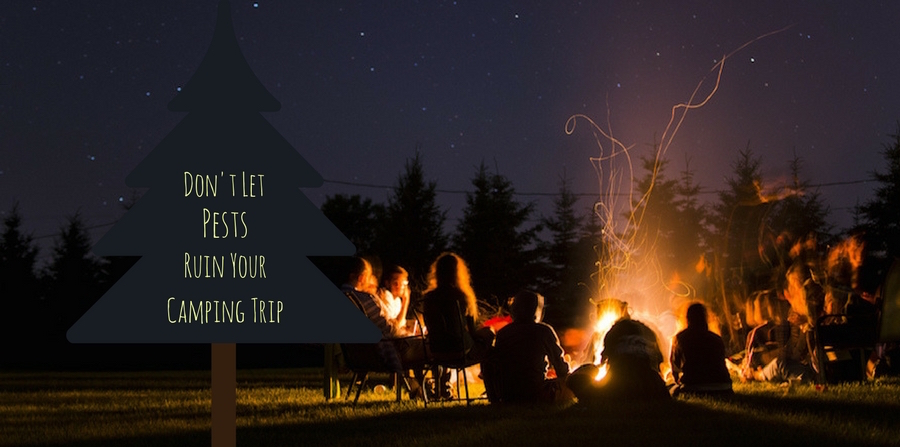Camping is the best. You get to be outside, you see beautiful sights, you can hang out with your friends and family, and (best of all) it makes you seem all rugged and self-reliant. Summer days are the perfect time to schedule a camping trip. Find somewhere you’ve never been before, pack your bags, and get out there!
Unfortunately, the wondrous splendor of the natural world has its downsides. Chief among these downsides are, of course, pests. When you think about it, every time you go camping, you’re essentially colonizing the domain of the pests. Here are some pests you should watch out for on your adventure into the untamed wild lands and some camping pest control ideas you can use to protect yourself from them.
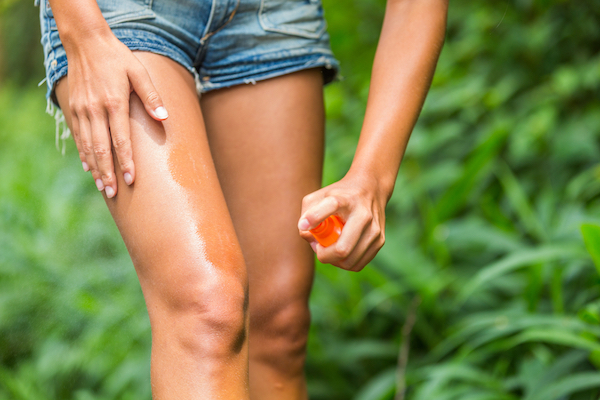
Mosquitoes
Enemy of the outdoorsman. Scourge of the camper. Rival of the attorney. Mosquitoes are known by many names, most of which aren’t fit for family websites. The bloodsuckers are found virtually everywhere, but you should prepare for them especially on camping trips. Mosquitoes like moist, humid, shaded environments with plenty of natural cover. They also prefer to be near water. Camping sites have all of that, plus their food even comes to them! Unprepared campers are essentially human conveyor-belt sushi to mosquitoes.
Luckily, camping pest control for mosquitoes is pretty easy. First, invest in some heavy-duty bug spray. Apply it every two hours while you’re outside. Wear long, brightly-colored clothing. Wear a hat and bring water to stay cool and minimize sweating. Make sure you wear hiking boots and appropriate, tight-fitting socks. When it starts getting dark out, consider retiring to your campsite. Mosquitoes become much more active starting at dusk. Build a fire if it’s allowed; the smoke will keep all kinds of bugs away. Drape a mosquito net over your tent and/or sleeping bag in the night.
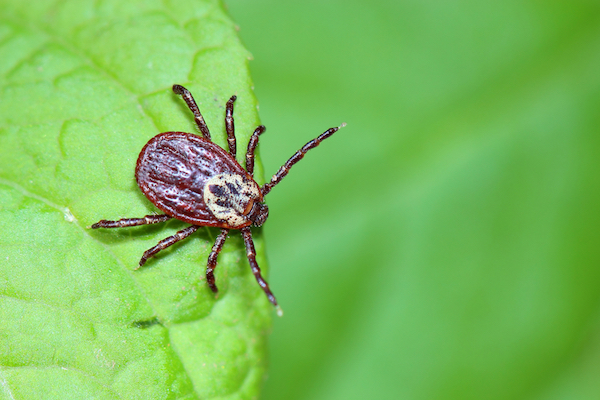
Ticks
This infamous hiking menace starts making trouble in the summer, just when you’re gearing up to go out. These bloodsuckers sneak onto campers and clamp down, gorging for days until they’ve gotten their fill. Ticks can even infect us with diseases while they’re stealing our blood. Ticks like campsites because they can use abundant natural flora near the trail during hunts. Ticks climb onto plants and lie in wait. When a victim wanders by, they leap on and bite down.
To practice tick camping pest control, build your camp in a well-maintained clearing. Avoid walking too close to overgrown edges or “off-roading” while you’re hiking. Apply anti-tick spray as frequently as you apply bug spray. Wear appropriate clothing like hiking boots, long socks, pants, and shirts, and a hat. When you get back to your campsite at night, thoroughly inspect your body, clothing, and equipment. Remove ticks you find with a tweezers immediately. If you find a tick on your clothing, re-check your body, remove that clothing, and isolate it from the rest of your stuff.
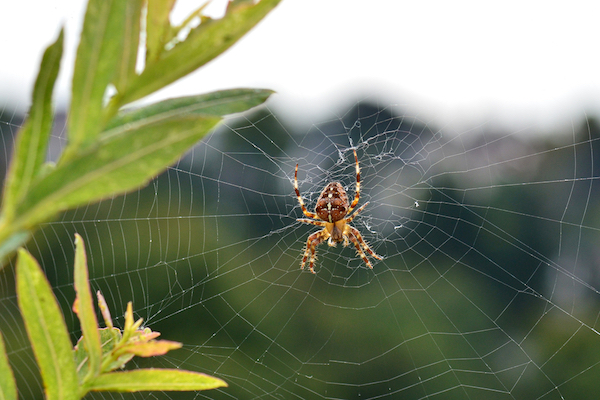
Spiders
Most spiders aren’t actually dangerous. Unlike ticks and mosquitoes, they don’t feed on humans, and they’re less likely to transmit disease. Virtually all spiders can and will bite when threatened, however, and the venom administered by a bite could itch, sting, or even burn. Camp sites attract spiders for two primary reasons: One, there are plenty of places to build webs. Two, they attract other pests. As flying pests flock toward humans and start buzzing around, hungry spiders follow. They build their webs wherever they have the right building conditions. Then, they wait for their prey to spring the trap.
Spider camping pest control is as much about what you don’t do as what you do. Don’t build your campsite under low-hanging foliage and plant life. Leaves and grasses you have to duck under could be the structures holding up spider webs. Avoid touching or resting on too many trees, rocks, or branches. Never stick your hand anywhere out of sight, like in the nook of a tree or under a rock. If you fall, accidentally lean on something, or brush up against a tree or bush, examine your clothing for spiders. Keep your food in sealed plastic containers at least 10 feet away from your tent at night.
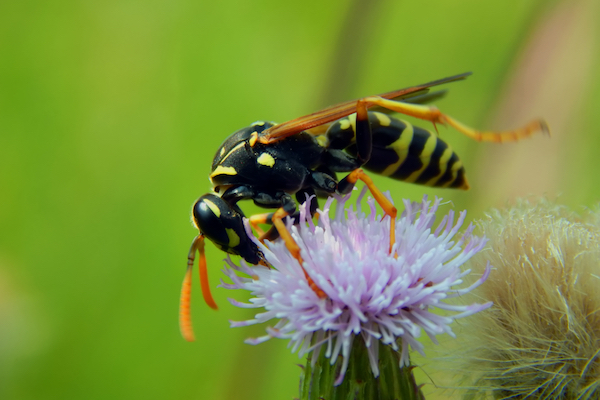
Bees and Wasps
Nothing will ruin your camping trip faster than upsetting a wasp’s nest. Suddenly, your outing is less “leisurely vacation” and more “desperate fight for survival.” Bees and wasps sting to defend their homes or when they feel threatened. Both bees and wasps tend to live around camping sites, albeit for different reasons. Bees seek out the nectar in flowers planted on and around the site. Wasps, like spiders, hunt the other prey attracted to the site.
Long clothing will go a long way toward preventing bee and wasp stings, as well. Avoid building your camp in areas with heavy foliage or vegetation. Watch for hanging hives nearby and avoid them. If you’re allergic to stings, bring along an EpiPen. Seal your food securely until you eat it. This counts double for sweets, because sugar attracts wasps and bees from surprisingly far away. Alcoholic beverages do, too.
Don’t let pests ruin your camping trip. Practice simple camping pest control techniques like these and you won’t have to spend time thinking about bugs while you’re out there. And remember: if you have pest questions related to camping, prevention, or anything else, you can always call the experts at Griffin Pest Control. Have a great trip!

